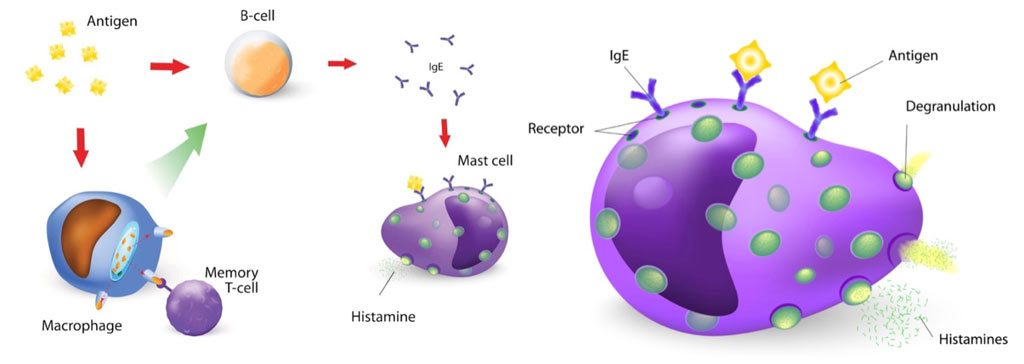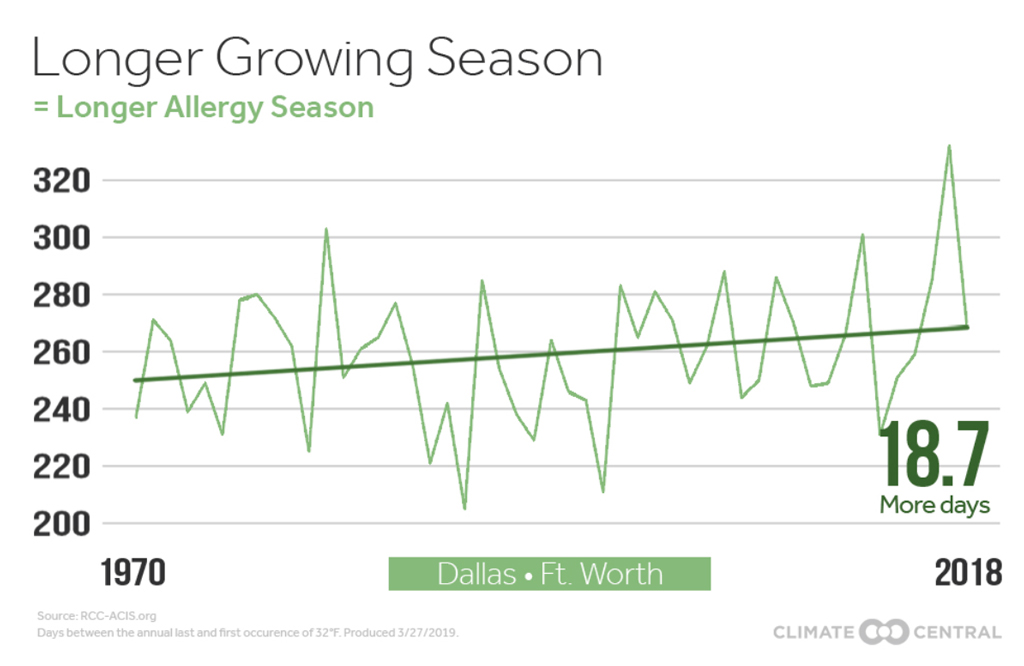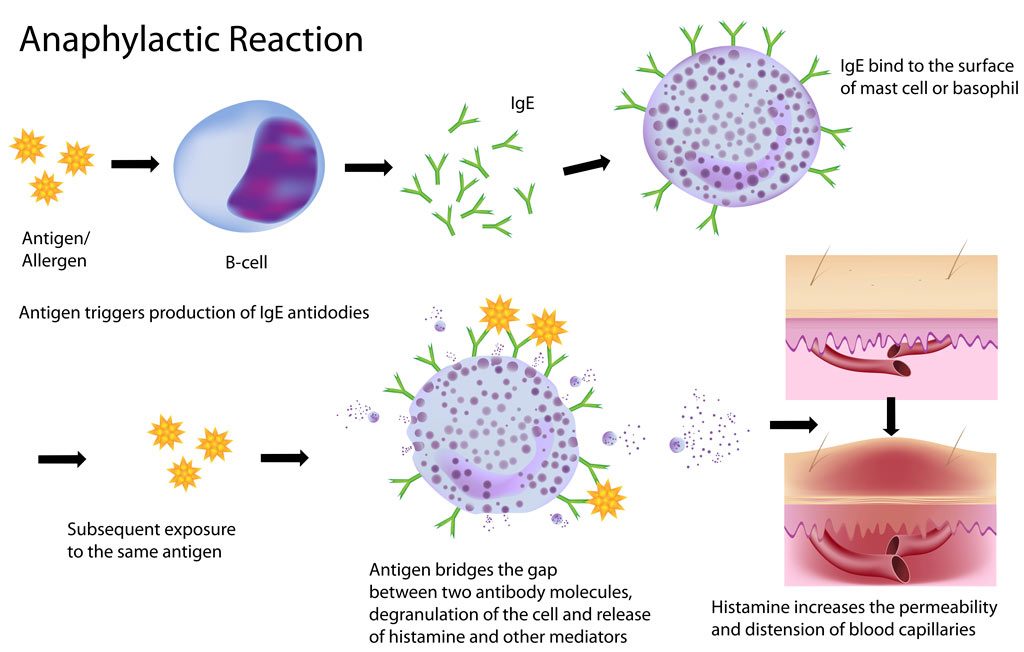Allergies are common in Fort Worth due to high pollen counts and environmental allergens, often causing symptoms such as sneezing, congestion, itchy eyes, coughing, and breathing problems. Fort Worth ENT offers comprehensive allergy evaluation, including testing and personalized treatment options to manage respiratory, skin, food, medication, and insect-related allergies. While most allergic reactions are mild to moderate, some can be severe and life-threatening (anaphylaxis) and require immediate medical care. Proper diagnosis and treatment can significantly reduce symptoms, prevent complications, and improve quality of life.
Suffering from allergies in Fort Worth? Our board-certified ENT specialists offer comprehensive allergy testing and personalized treatments, including allergy shots and drops, to help you find relief.

Pollen Count and Allergies in Fort Worth
Allergic rhinitis, or “hay fever” as a result of seasonal allergies can have the same symptoms of asthma triggered by pollen count. Allergic asthma or extrinsic asthma is the most common type of asthma according to the Asthma and Allergy Foundation of America. The national allergy bureau pollen and mold report and Pollen.com are excellent sources for a pollen count calendar. When the warm season lengthens, the annual allergy season is prolonged due to the increase in the amount of pollen that plants produce. This results in a longer span of hay fever and nasal allergies which can lead to sneezing, irritated eyes, sneezing, a runny nose, congestion, and possible sinusitis.

Allergies are caused by Allergens
Allergens can affect you when:
- Inhaled
- Swallowed/ingested
- Introduced through contact with the skin
- Introduced through an insect sting
Common types of allergies include:
Conditions we treat at Fort Worth ENT include:
- Sinusitis
- Hay fever and nasal allergies
- Asthma and other breathing problems
- Eye allergies
- Bronchitis
- Throat drainage
- Chronic coughing
- Recurrent/chronic ear infections or throat infections
- Immunodeficiencies
- Headaches
- Sleep disorders related to allergies
- Hives, rashes, and itching
- Skin allergies
- Contact dermatitis
- Food allergies
- Medicine allergies
- Insect allergies and reactions
- Latex allergies
In many cases, allergies cause mild to moderate symptoms, however, for some patients, those allergens can be extremely dangerous and even life-threatening (anaphylaxis).

Severe allergies can bring on a dangerous allergic reaction called anaphylaxis. Anaphylaxis can send your body into shock with symptoms that often occur suddenly. A runny nose or mild rash can quickly lead to more serious, possibly life-threatening symptoms.
Anaphylaxis symptoms can include:
- Difficulty breathing
- Throat tightness
- Tongue or face swelling
- Tingling of the lips, scalp, feet, or hands
- Rapid pulse
- Vomiting
- Dizziness/fainting
- Heart stoppage
Anaphylaxis can take moments or hours to produce these symptoms and typically requires an epinephrine injection (epi pen) into a muscle to counteract the allergen. Patients who have severe allergies should always carry an epinephrine autoinjector in case they are exposed to their trigger allergen.
The most common causes of anaphylaxis are:
- Foods (especially in young children)
- Medications
- Insect bites or stings
Other less common allergens, as well as physical factors such as exercise, can trigger anaphylaxis. If you ever feel as if you are experiencing a severe allergic reaction, you should go to the hospital or call 911 immediately. Even if you use your epi-pen and feel better, you should go to the emergency room, as an additional delayed allergic reaction can still occur.
Allergic Reactions
When the body mistakenly interprets an allergen as an attack, the immune system releases immunoglobulin E (IgE), an antibody that fights against the substance, and histamines, chemicals produced to increase blood flow to the symptomatic area of the body. This process helps other bodily chemicals work to eliminate the allergen. So, the annoying allergy symptoms that you experience during a reaction are actually the body’s attempt to keep you safe from a perceived attack.
While there are many common allergy symptoms, allergic reactions can vary depending on the means of exposure, or the manner in which you were exposed to the allergen.
Common mild to moderate allergy symptoms include:
- Coughing
- Sneezing
- Runny nose
- Hives or rash
- Itchy eyes, nose, and/or roof of the mouth
- Watery eyes
- Sore throat
- Wheezing
- Nausea or diarrhea
- Dark circles under the eyes
Who Gets Allergies and Why?
Allergies are an extremely common condition with about 20% of Americans suffering from at least one type of allergy. Allergies can present at any age and symptoms of an allergy may not develop until adulthood.
Developing an allergy depends mostly on your genetic makeup. Many allergies are hereditary (passed on from parent to child). If you have a predisposition to be allergic to something, then exposure to that allergen can contribute to your developing an allergy.
Allergen exposure factors include:
- Intensity (how much you are exposed to)
- Frequency (how often you are exposed)
- Stage in life (how early in life you are exposed)
Other contributors to allergies can include:
- Hormones
- Infection
- Pollution
- Smoking
Some allergies can develop later in life, while some patients outgrow childhood allergies. Acquiring seasonal allergies is fairly common among adults. Any time the body mistakenly identifies a substance as harmful, an allergic reaction will occur. Why the body suddenly reacts to an allergen after showing no previous reaction is unknown.
Types of Allergies
Allergy treatment at Fort Worth ENT starts with determining what type of allergy the patient is experiencing.
Common types of allergies include:
Learn more about the different types of allergies by clicking the links above.
At Fort Worth ENT & Sinus Center, we offer a multidisciplinary approach to allergy treatment. If you are looking for an allergy specialist in Fort Worth, please complete an online appointment request or phone 817-332-8848.


